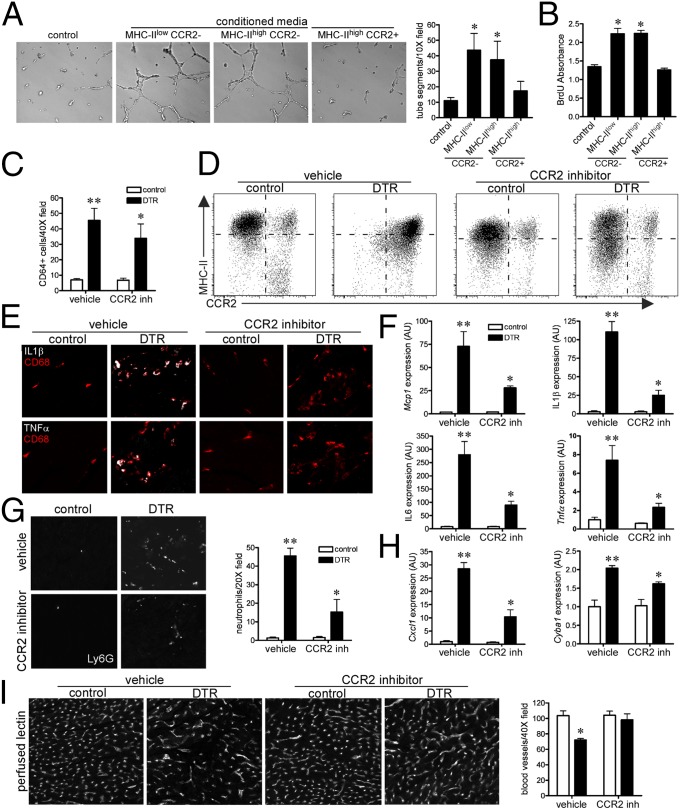Fig. 6.
Inhibition of monocyte recruitment preserves embryonic-derived macrophage subsets and improves adult cardiac repair (A and B). Conditioned media obtained from adult MHC-IIlowCCR2− and MHC-IIhighCCR2− macrophages stimulates endothelial tube formation (A) and neonatal rat cardiomyocyte proliferation (B). (C) Quantification of CD68+ monocyte/macrophages after cardiac injury and CCR2 inhibition. (D) Flow cytometry revealing that CCR2 inhibition blocked CCR2+ monocyte and macrophage recruitment to the injured heart and preserved CCR2− resident macrophage subsets. (E and F) Immunostaining (E) and quantitative RT-PCR (F) assays measuring cardiac expression of IL1β, IL6, MCP-1, and TNFα after cardiac injury and CCR2 inhibition. (G and H) Ly6G immunostaining (G) and quantitative RT-PCR (H) showing that CCR2 inhibition reduced neutrophil influx, Cxcl1, and Cyba1 mRNA expression after cardiac injury. (I) Perfused lectin staining showing that CCR2 inhibition preserves coronary microvascular integrity after cardiac injury. *P < 0.05 compared with control; **P < 0.05 compared with all other groups.

